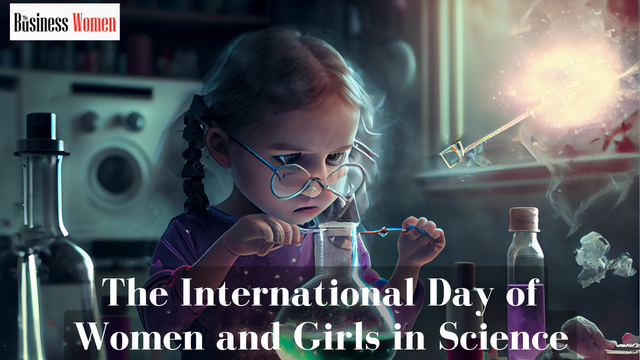The annual observance of the International Day of Women and Girls in Science on February 11 signifies a global commitment to promoting gender equality in Science, Technology, Engineering, and Mathematics (STEM) fields.
Enacted by the United Nations General Assembly through resolution 70/212 on December 22, 2015, this day underscores the importance of ensuring women’s full and equal participation in scientific pursuits. This article examines the historical backdrop, persistent challenges, and commendable efforts surrounding the commemoration of this significant day.
Challenges in Women’s STEM Participation
Throughout history, women have faced underrepresentation in science and technology, encountering enduring challenges in pursuing careers in STEM. Despite a gradual increase in women obtaining science and engineering degrees between the 1960s and 1980s, progress stagnated from the 1980s onward.
Social barriers, encompassing societal expectations for women’s roles in the home, early marriage, and discriminatory practices in the labour market, have impeded women’s access to STEM education and careers, particularly in regions like Africa, South Asia, and the Caribbean.
Contemporary Hurdles and Global Disparities
In the present day, social barriers persist as pervasive gender biases, with studies in the United Kingdom revealing that girls are less likely to be encouraged to study physics post the compulsory participation age.
Regional differences contribute to disparities, with the United States experiencing lower enrollment and attraction to scientific education, while the Arab world witnesses high enrollment but faces career and social barriers hindering further participation.
United Nations Initiative
Addressing these challenges, the United Nations took a landmark step by adopting resolution 70/212, designating February 11 as the International Day of Women and Girls in Science. Aligned with the 2030 Agenda for Sustainable Development, this resolution emphasises the goals of quality education and gender equality.
Taking the lead in implementing this initiative, UNESCO and UN Women collaborate with governments, intergovernmental organisations, civil society, universities, and corporations to promote and celebrate women’s contributions to scientific fields.
Annual Commemorations and Central Themes
The annual International Day of Women and Girls in Science Assembly, convened by the United Nations, serves as a platform to bring together representatives from member states, international organisations, the private sector, and leading scientists. Co-sponsored by various nations, the assembly centres discussions and initiatives around a central theme each year.
Annual Themes of the International Day of Women and Girls in Science
2016: “Transforming the World: Parity in Science”
2017: “Gender, Science and Sustainable Development: The Impact of Media – From Vision to Action”
2018: “Equality and Parity in Science for Peace and Development”
2019: “Investment in Women and Girls in Science for Inclusive Green Growth”
2020: “Equality in Science, Technology and Innovation: Global Trends and Challenges”
2021: “Beyond the Borders: Equality in Science for Society”
2022: “Equity, Diversity, and Inclusion: Water Unites Us”
2023: “Innovate. Demonstrate. Elevate. Advance. Sustain. IDEAS: Bringing Everyone Forward for Sustainable and Equitable Development.”
For 2024, the central theme for the 9th International Day of Women and Girls in Science Assembly is: “Women and Girls in Science Leadership, a New Era for Sustainability,” with the subtheme: “Think Science … Think Peace.”
Conclusion
The International Day of Women and Girls in Science serves as a poignant reminder of the progress made in advancing gender equality in STEM fields and the ongoing challenges that necessitate collective efforts for resolution.
Through annual commemorations, focused themes, and collaborative initiatives, the global community remains dedicated to championing the cause and inspiring future generations of women and girls to actively pursue and excel in scientific endeavours. As we celebrate this day, it is crucial to reflect on our achievements and reassert our commitment to fostering an inclusive and equitable environment for women and girls in science.









